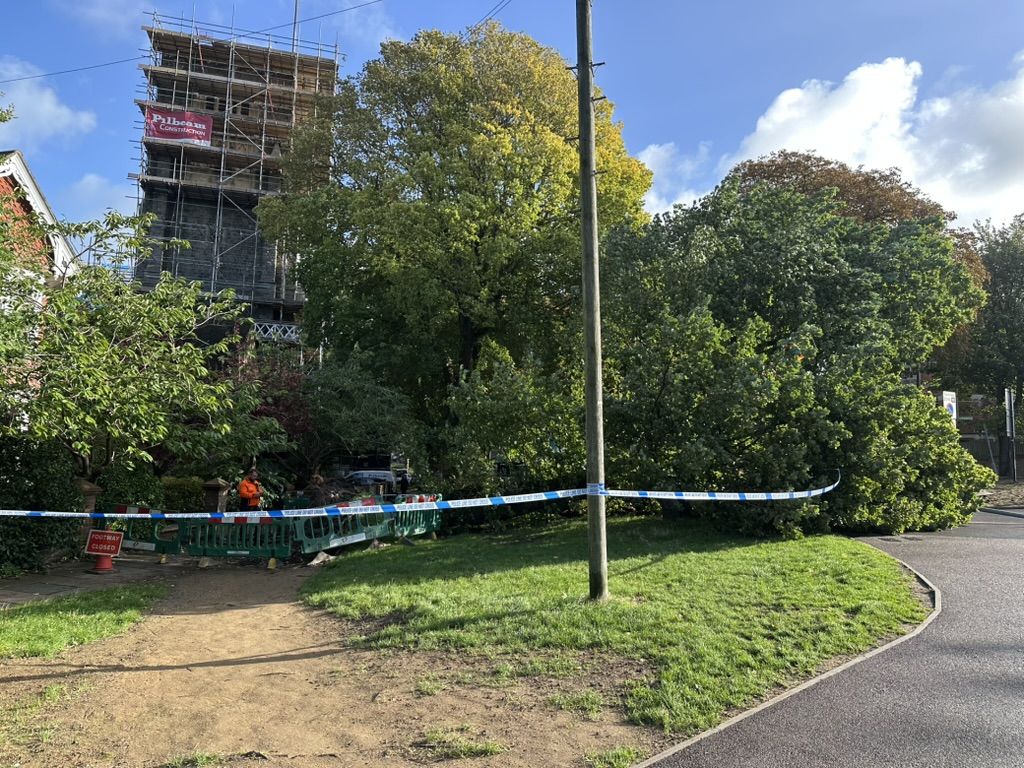A Car-Park Collector's Paradise

Sometime during lockdown, my friend Bassey and I both got recommended a Youtube video at the same time; a rip of a documentary from 1980 called All Change For Brighton:
We—and many of our other friends—are fans of Brighton history, so stuff like this is fascinating to us. We're always interested to see how the town has changed, what things used to be where the things we're now familiar with etc. There's also some fun where-are-they-now stuff (a councillor who's interviewed ends up representing Newhaven, just down the coast, for decades). More than that, though, we were very taken by the presenter Jack Tinker's affected manner of delivery and peculiar preoccupations (all the talk about car parks! the clanging as he namedropped Baron Olivier!) We've all since become even more obsessed, to the point that while wandering around town if I see something interesting I will launch into an impromptu monologue about how it's all Queen Anne front and Mary-Ann back or how Baron Olivier used to do his shopping at this Co-Op and now it's more disgusting student housing.
Why have we become thusly fixated? Partly it's because his curmudgeonly obsessions (particularly with car parks) are often expressed in an actually very funny way; lines like
I sometimes think that if [the Brighton Pavilion] were offered to the present local authority, they'd clear the site immediately for yet another National Car Park.
and
In the twenty years that I've been in this town there's been only one recognisable planning policy throughout, and that is that if every street can't have its own car park, it should be a car park. This town has become a car-park collector's paradise.
are genuinely hilarious—particularly when accompanied by harpsichord music like in Look Around You or followed by lots of shots of cars at Dutch angles revving their engines. But more than that, I think it really is—as the continuity announcer says at the beginning, very personal—very particular. It really is, in part, just wandering around Brighton with a theater critic, talking to various local luminaries and random boring people, giving out about there being too many car parks and pointing out where Baron Olivier used to live.
(I think the car park thing does something to temporally situate it too. While a brief glimpse at (Tinker's former paper) The Argus' letters page on any given day after a story about bike lanes has run would disabuse you of the notion that issues of this kind have died away completely, there's still this feeling of it being a complaint peculiarly animating at the time. I remember as a small child in the early 2000s, a certain sort of person would bore on about how you couldn't do anything to criminals because of human rights in increasingly Stewart Lee-esque terms, and this has the same feel—something that was an animating, front-of-mind issue at the time.)
In my Tinkermania I also discovered this obituary for him in the Independent, which contains a lot of gems:
Following Jack's divorce, he and I shared a commodious flat in Hove. Jack, who by this time had come out as gay, enjoyed recounting the more bizarre events of his murky divorce. "A particularly revolting form of cruelty," the divorce court judge was alleged to have said, scribbling Jack's telephone number down under the desk.
but also paints a picture of a man beloved of many, an actual raconteur and bon vivant—rather than the tiresomely affected version of that type so many attempt to manifest—and moreover an influential part of the theatrical world, as some of the names on the tribute show for him will attest. David Lister (presumably not that one) said in his part of the obituary that:
My great regret about Jack was that he was so ephemeral.
Not much survives about him online: a few obituaries, some memories on personal and Brighton-relatedsites, some information about an award named for him at the Edinburgh Fringe. (There's also this book, which I, of course, have a copy of.) But in the 30 minutes of All Change, I think, we get something that's special wherever you find it in media: we get something that really profoundly reflects one person and their peculiarities. It really gives us a concentrated shot, as the man himself would say, of his "special salty blend".
- ← Previous
Volks Rail Avenger - Next →
Just Log Off